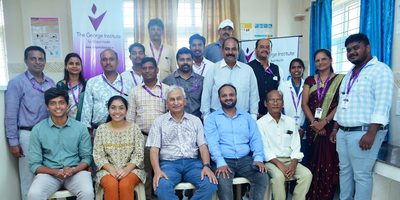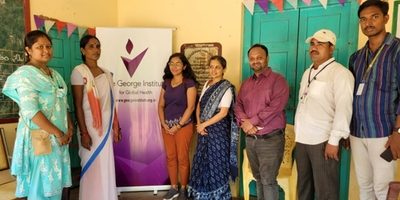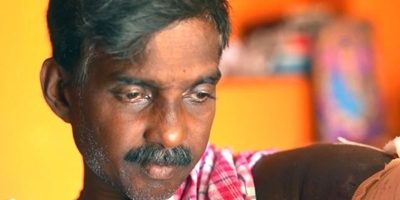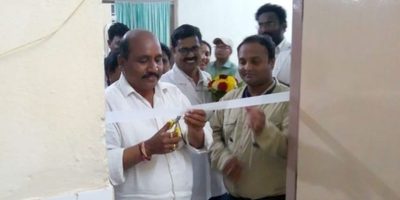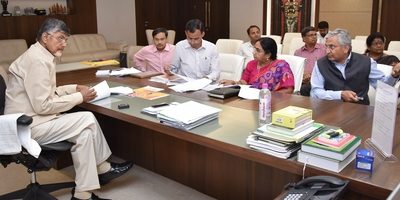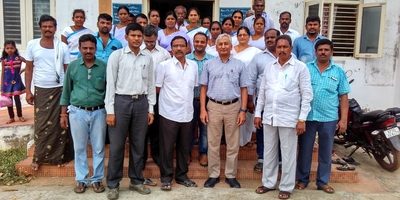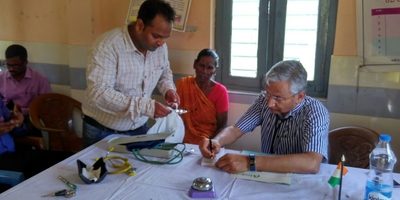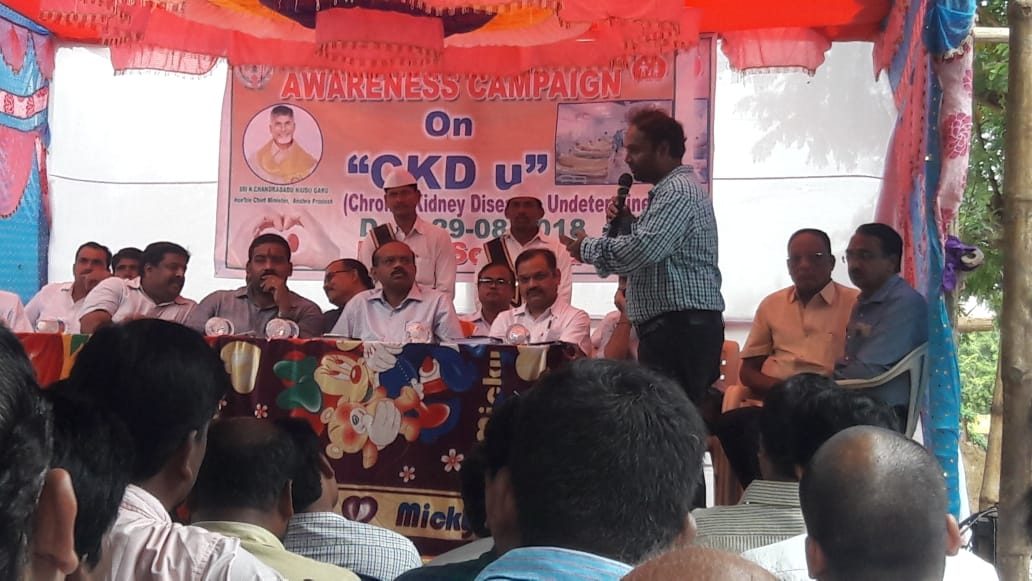
Building community awareness to STOP CKDu in Uddanam region of Andhra Pradesh
The George Institute India along with the District collector and Andhra Pradesh Health and Family welfare department, conducted large scale community level awareness sessions at Uddanam region, Srikakulam, Andhra Pradesh
A series of awareness sessions were conducted across seven manuals of uddanam area between 25th August and 6th september 2018. as part of our STOP CKDu, educating the community on possible risk factors for kidney disease. Apart from the community, ASHA, ANMs, Self Help Group (SHG) leaders, Anganwadi Workers, public and private practitioners, Rural Medical Practitioners, village sanitation workers, Panchayat and Revenue Dept officers, representatives from agriculture and horticulture Dept. also participated.
Awareness booklets and Do's and Don't panphlets, developed by The George Institute were launched and distributed at the awareness sessions. The education materials will reach all households in uddanam region, covering around 0.55 million population.
Dr Balaji Gummidi, Senior Project Manager at The George Institute also addressed the gathering about the research activities which involved focus group discussions, in depth interviews with patients groups and other key stakeholders.
In recent years, there have been multiple reports of high prevalence of CKD amongst the rural communities of coastal Andhra Pradesh, most notably the "Uddanam" region of Srikakulam district. The affected individuals have been described as young males in the age group of 20 to 40 years. The disease presents with very few symptoms and progresses insidiously. The cause, if any, for this condition is not known. Drinking water has been often implicated in the genesis of this condition, any proof, however, is lacking.
The STOP CKDu study is aimed at addressing all aspects of the problem – estimate the disease burden using rigorous scientific methodology and sociological tools, undertake an environment mapping and additional investigations as needed.
In May 2018, Prof Vivekanand Jha provided expert level training to all primary health center medical officers and medical superintends in the region. A baseline survey started in June, across seven mandals and our team collected information on socio economic status, behavioral aspects, family history of diseases, current health conditions, medication adherence and anthropometric measurements of affected people.





